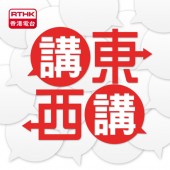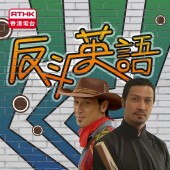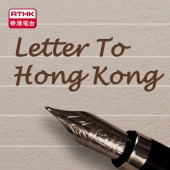 載入中 ...
載入中 ...
返回
Legislator Eddie Chu
2019-07-21
Dear comrades of the anti-extradition movement,
Hong Kong is always full of wonders, this time not to tourists, but to ordinary citizens like you and me, who never dreamt of the sudden eruption of public anger against the government. In the past two months, We walked side by side in marches, we protected each other in confrontations and hunger strikes, we shuttled between hospitals, police stations and law courts. We had the same sleepless nights following news and discussions on countless telegram groups, and we mourned the loss of lives together.
In this so-called leaderless movement, we have actually learnt more about ourselves, our government and Hong Kong society as a whole than all previous movements with leaders. Most importantly, We know the chief executive and high officials are now deploying a delaying tactic by hiding behind police shields and waiting for clashes. They are sowing seeds of hatred among people to sabotage the long term development of our civil society. We want the movement to be as fluid as water, but we know Hong Kong is dragged into a stalemate right now.
Every movement has its life-cycle. some are crushed by the authority violently, some die down due to internal split up, some lose public support after radical actions. The movement we are engaging now is still lively, but I think we need to pay attention to the following three aspects in order to strengthen it and get what people want.
First is to acknowledge the progress of the movement. It has been a taboo after the umbrella movement to claim victory in any political campaign, for fear that people will be satisfied with the status quo. It is good to remind ourselves that the political war against Beijing is always a mission impossible but this time it would be irrational not to acknowledge the progress of the anti-extradition movement. We have in fact killed the government’s proposal to amend the fugitive offenders ordinance and that was perceived by the world as the biggest failure of the Chinese communist party to tighten its grip on Hong Kong since the scrapping of the legislation of national security ordinance in 2003.
From the perspective of internal organization, we miraculously overcome the tension between different tactics and political ideas within the opposition camp since the umbrella movement and voice out as one; and we manage to put Hong Kong to the top political agenda of major western countries once again and encourage freedom fighters around the world to continue their fight.
Of course, The government is far from fulfilling people’s major demands. There is still no withdrawal of the bill, no independent investigation of police actions, no guarantee that no protesters would be criminalized as rioters, no stepping down of officials, and no promise of democracy. Yet, we can be more confident in facing the challenges ahead because in solidarity we did achieve something in these few months.
The second thing we need to pay attention is to understand the people who are not with us yet. There were near two million people took to the street on 16th June, close to one fourth of the city’s population. If Hong Kong was a sovereign state, the government would have fallen apart immediately. But ours is only a proxy of the almighty force of the Chinese communist party. That is the major reason why there are still so many indifferent faces on the streets. Radical activists in the movement suggest that since peaceful protest itself is not enough to force the government to back down, we need to have stronger confrontations. While I do not deny the power of radical actions, I am deeply worried that it may become more difficult to win the hearts of those who are left behind.
The third problem we have is how to transform the current movement to a wider and concrete fight for freedom and democracy. What Hong Kong is experiencing in the past two months is the eruption of people’s anger against years of Beijing’s eroding of Hong Kong’s autonomy, the extradition bill was just the final straw but the root cause is always the lack of democracy. Beijing wants full control of the city and failed to fulfil the promise of universal suffrage enshrined in the Basic Law.
But since the umbrella movement and the disqualifications of legislators and election candidates, the opposition has left with no road map and concrete plans on the future political status of Hong Kong. Democrats in the legislative council and the civil society are in a defensive mode trying to slow down the deterioration of the city’s basic human rights. It leads to a mismatch of people’s sentiment and the political demands on the table this time. In short, people are in a state of revolution with no plan to change the government.
"The declaration of Hong Kong Protesters" announced by the occupiers of the Legislative Council on 1st July, which demands the authority to dissolve the current legislative council by administrative order, and immediately implement Dual Universal Suffrage, was a good start to reignite the abandoned democratic movement and deserve more attention. Moreover, the coming District Council election in November should be an important vehicle to gear up public support for a concrete democratization pathway, candidates from the opposition can agree on a short term target of democratization, for example, to elect all legislators directly in the year 2020, and make it the core element of the election platform.
I’m proud to be part of the movement. See you in the next rally.
Hong Kong is always full of wonders, this time not to tourists, but to ordinary citizens like you and me, who never dreamt of the sudden eruption of public anger against the government. In the past two months, We walked side by side in marches, we protected each other in confrontations and hunger strikes, we shuttled between hospitals, police stations and law courts. We had the same sleepless nights following news and discussions on countless telegram groups, and we mourned the loss of lives together.
In this so-called leaderless movement, we have actually learnt more about ourselves, our government and Hong Kong society as a whole than all previous movements with leaders. Most importantly, We know the chief executive and high officials are now deploying a delaying tactic by hiding behind police shields and waiting for clashes. They are sowing seeds of hatred among people to sabotage the long term development of our civil society. We want the movement to be as fluid as water, but we know Hong Kong is dragged into a stalemate right now.
Every movement has its life-cycle. some are crushed by the authority violently, some die down due to internal split up, some lose public support after radical actions. The movement we are engaging now is still lively, but I think we need to pay attention to the following three aspects in order to strengthen it and get what people want.
First is to acknowledge the progress of the movement. It has been a taboo after the umbrella movement to claim victory in any political campaign, for fear that people will be satisfied with the status quo. It is good to remind ourselves that the political war against Beijing is always a mission impossible but this time it would be irrational not to acknowledge the progress of the anti-extradition movement. We have in fact killed the government’s proposal to amend the fugitive offenders ordinance and that was perceived by the world as the biggest failure of the Chinese communist party to tighten its grip on Hong Kong since the scrapping of the legislation of national security ordinance in 2003.
From the perspective of internal organization, we miraculously overcome the tension between different tactics and political ideas within the opposition camp since the umbrella movement and voice out as one; and we manage to put Hong Kong to the top political agenda of major western countries once again and encourage freedom fighters around the world to continue their fight.
Of course, The government is far from fulfilling people’s major demands. There is still no withdrawal of the bill, no independent investigation of police actions, no guarantee that no protesters would be criminalized as rioters, no stepping down of officials, and no promise of democracy. Yet, we can be more confident in facing the challenges ahead because in solidarity we did achieve something in these few months.
The second thing we need to pay attention is to understand the people who are not with us yet. There were near two million people took to the street on 16th June, close to one fourth of the city’s population. If Hong Kong was a sovereign state, the government would have fallen apart immediately. But ours is only a proxy of the almighty force of the Chinese communist party. That is the major reason why there are still so many indifferent faces on the streets. Radical activists in the movement suggest that since peaceful protest itself is not enough to force the government to back down, we need to have stronger confrontations. While I do not deny the power of radical actions, I am deeply worried that it may become more difficult to win the hearts of those who are left behind.
The third problem we have is how to transform the current movement to a wider and concrete fight for freedom and democracy. What Hong Kong is experiencing in the past two months is the eruption of people’s anger against years of Beijing’s eroding of Hong Kong’s autonomy, the extradition bill was just the final straw but the root cause is always the lack of democracy. Beijing wants full control of the city and failed to fulfil the promise of universal suffrage enshrined in the Basic Law.
But since the umbrella movement and the disqualifications of legislators and election candidates, the opposition has left with no road map and concrete plans on the future political status of Hong Kong. Democrats in the legislative council and the civil society are in a defensive mode trying to slow down the deterioration of the city’s basic human rights. It leads to a mismatch of people’s sentiment and the political demands on the table this time. In short, people are in a state of revolution with no plan to change the government.
"The declaration of Hong Kong Protesters" announced by the occupiers of the Legislative Council on 1st July, which demands the authority to dissolve the current legislative council by administrative order, and immediately implement Dual Universal Suffrage, was a good start to reignite the abandoned democratic movement and deserve more attention. Moreover, the coming District Council election in November should be an important vehicle to gear up public support for a concrete democratization pathway, candidates from the opposition can agree on a short term target of democratization, for example, to elect all legislators directly in the year 2020, and make it the core element of the election platform.
I’m proud to be part of the movement. See you in the next rally.
Politicians and public figures from a range of backgrounds take turns to have their say on important matters of the day in this personal view programme.
Catch it live: Sunday 8:15am - 8:25am
Podcast: Updated weekly and available after broadcast.











